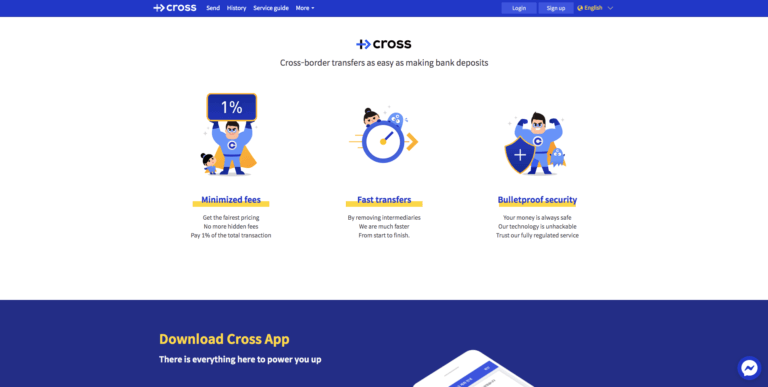On Wednesday (April 8), South Korean remittance firm Coinone Transfer, a subsidiary of crypto exchange Coinone, explained how it has been using Ripple’s technology to solve problems with cross-border payments and to open new payment corridors.
On 10 December 2018, Ripple introduced this company and its “blockchain-powered remittance mobile app and web service” (called ‘Cross”), which launched in December 2018 and initially was designed to offer “faster, lower cost payments to Thailand and the Philippines.”
According to Ripple, Cross had two advantages over other remittance options in South Korea:
- Since it did not “rely on traditional banking rails”, it provided “a safe alternative for those with or without a bank account”; and
- By using Ripple’s technology, it was able to offer increased payment transparency and reliability.
Coinone Transfer was able to use RippleNet, Ripple’s global payments network, to enable payments to Thailand (via Siam Commercial Bank) and the Philippines (via Cebuana Lhuillier).
In that blog post, Ripple also explained why there is a “growing demand” for cross-border payments in South Korea: the country is home to around two million migrant workers (around 3.4% of South Korea’s population); over 200,000 of these workers come from Thailand and the Philippines. These foreign workers need to send money home to their families.
Before the Cross service got launched in December 2018, for “sending smaller sums of money overseas, the cost of sending a payment was often too high to justify”; furthermore, it was quite difficult to trace payment history.
What allowed Coinone Transfer to launch the Cross service was the decision by the government of South Korea to offer “Global Remittance Licenses to non-bank businesses operating remittance services in the country” (this process started in July 2017).
Coinone Transfer then formed a strategic partnership with SBI Ripple Asia, which is “a joint venture between U.S. FinTech venture Ripple and SBI Holdings to provide next-generation payment infrastructure utilizing distributed ledger technology (DLT) to financial institutions and remittance companies in Asia.”
Earlier today, Ripple published another blog post to provide an update on Coinone Transfer’s progress since the launch of the Cross service.
Coinone Transfer’s Business Development Manager, Camille Jeong, told Ripple:
“People were used to going to the bank to send money abroad. We are not a bank so we had to work hard to gain the trust of customers.
“The unique Ripple-powered benefits of our service and innovative marketing brought people in.
“Our superior customer experience kept them coming back and our retention rate is now more than 80%.”
Jeong went on to say:
“Global transfers were difficult for foreign workers. They had to go into the bank branch to request them, which was inconvenient especially for those living and working in rural areas.
“The payment could take as long as seven days to reach their family back home and the costs were really high, especially for the smaller value amounts typically sent by migrants.”
Next, Jeong talked about how RippleNet had allowed her firm to open payment corridors to Thailand, Philippines, and Sri Lanka:
“RippleNet connected us to financial institutions in Thailand, Philippines and Sri Lanka… so we could open these popular payment corridors quickly.
“This keeps our integration and operational costs low and our customers benefit from fees that are usually less than 1%.
“Our RippleNet connections also allow us to settle transfers in real time – a huge improvement on the traditional multi-day process of the banks.
“And our Cross app is convenient. Customers just send money from their phones.”
Jeong also talked about her company’s success with the Cross app:
“The benefits of our convenient, low-cost, real-time global payments keep them coming back.
“Migrants workers send money home regularly and with our customer retention rate of more than 80%, we get a lot of repeat business.
“Since we launched Cross in October 2018, our transaction volume has grown an average of 50% each month.”
Finally, she talked about how Coinone Transfer’s plans to open up new payment corridors with the help of RippleNet:
“We’re looking at the parents of Koreans who are studying abroad and need to send money to pay for tuition fees and living expenses.
“They will be able to use Cross to make low-cost, real-time payments to countries like the US, UK, Hong Kong and Singapore.
“We’re starting to connect with financial institutions in those countries via RippleNet to develop these new corridors.
“When this new audience trusts Coinone Transfer for payment and the great experience keeps them coming back, our business will grow stronger.”
Featured Image Courtesy of Coinone Transfer Inc.









